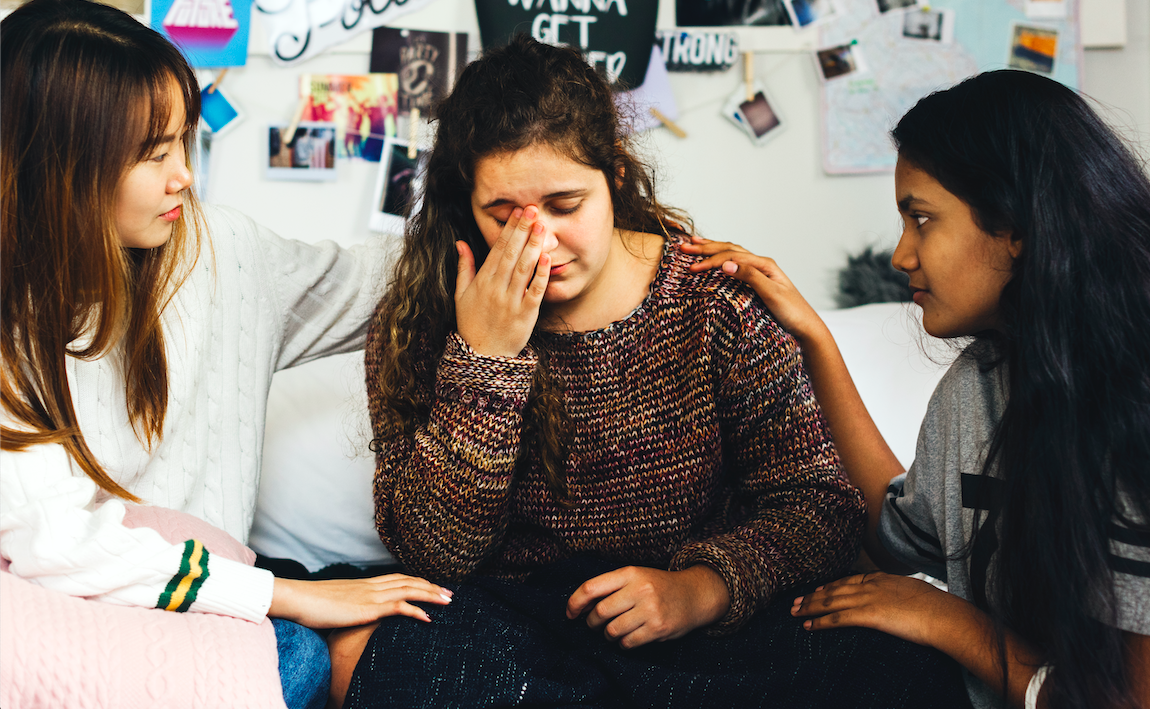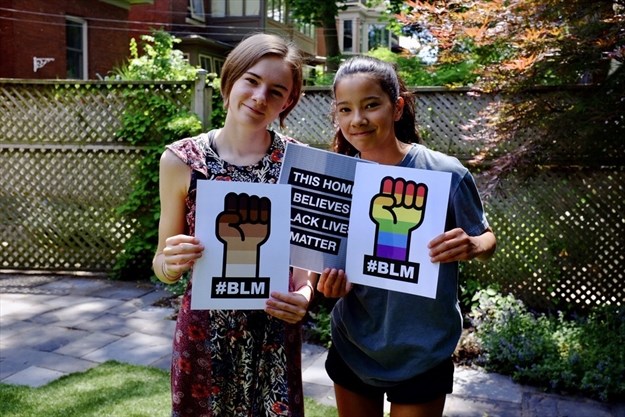A Lonely Generation Passionate For Relationship
By Kiera Colson Our blog today was authored by Kiera Colson. Kiera is a 19-year-old sophomore at Lee University and was an intern with us at Growing Leaders this past summer. Kiera is a brilliant young leader who is passionate about seeing her generation grow into their highest potential. A two-week surprise vacation turned into a two-year realization for the rising generations. We
Three Doable Ideas to Retain Generation Z Team Members
By Tim Elmore When I talk to managers who say they lose young team members almost as quickly as they hire them, I am troubled. Corporate managers are asking a recent graduate to join a workforce that seems impersonal, like they’re a cog in the machine. While we know it’s tough for those young team members to make the leap from
Three Realities That Define Generation Z’s Perception of Leaders
By Tim Elmore I consistently meet executives who are confounded by the attitudes of their younger team members. These leaders witness their rookie colleagues fail to show any commitment or leave after just months on the job. My friend Carl is president of his company and recently met with Hilary and Collin, both young employees who are less than one year on
Six Ideas for Building a Work Ethic into Generation Z
By Tim Elmore Bob Wagner is hiring for three positions at his plastics manufacturing company. In the past, he’s filled these positions with high school and college students as well as recent graduates. These days, he is interviewing older job candidates. In fact, his top candidate is 72 years old. Why? you ask. Bob would tell you he can’t find young adults (from
A Clear P.I.C.T.U.R.E. of Generation Z
By Andrew McPeak Today’s blog is an excerpt from the upcoming book, “Ready for Real Life.” Be on the lookout for the upcoming pre-order of “Ready for Real Life” coming soon. For more than a decade now, we at Growing Leaders have been giving adults training and advice for how to best understand and engage their students. In this time, the gaps
A Dozen More Gen Z Terms You Should Know
By Tim Elmore Something’s happened since the spring of 2020 that needs to be addressed. Many of us, especially those under 21, lost some of our communication skills. The lockdown, the anxiety levels, and the diminished interaction between a variety of people changed the way we socialize. And the generation gap widened. Good communication between adults and teens (or young people
Seven Ideas to Overcoming the Cinderella Syndrome
By: Tim Elmore Seven Ideas to Overcoming the Cinderella Syndrome In 1989, I first heard the term Cinderella Syndrome. This complex refers to a psychological condition in which a woman fears true independence and secretly expects a “knight in shining armor” (or Prince Charming) to come along and take care of her. The term Cinderella complex was coined by Agatha Christie in a
Changing the Way We See Our Students
By: Tim Elmore Like so many other districts, the Northwest School District in Missouri faced a shortage of employees. It’s actually happening all over the country in almost every industry. “Help Wanted” signs go unanswered as fewer Americans want to take on lower-paying jobs in light of a pandemic. In the NW school district, custodial, food service, and before and after school
How to Help Students Beat Stress and Welcome Pressure
By: Tim Elmore Jana Davidson teaches seventh-grade science and tenth-grade biology. Every day, she observes students entering her classroom feeling stressed out. Many of them feel overwhelmed. Anxiety has been normalized thanks to social media and a pandemic. When I asked Ms. Davidson how she helps her students manage their stress, she told me she assumes the best way is to take
What We Learn About Generation Z From the Top Netflix Show: Squid Game
By: Tim Elmore I’m not talking about The Crown. Nor am I talking about Game of Thrones. I am not even talking about Bridgerton. There is a new show in town on Netflix. The series Squid Game has taken the Netflix platform by storm. Squid Game has attracted 111 million views since its release on Sept. 17, according to a Netflix tweet.
Ever Heard of the Blackout Challenge? How Social Media Is Changing Peer Pressure and What to Do About It
By: Tim Elmore I remember feeling tangible peer pressure in high school. Friends pushed me to smoke cigarettes and marijuana, drink beer, and be sexually active. This was not uncommon in the 1970s. Culture was morphing from traditional to rebellious as baby boomers and Gen Xers pushed boundaries and listened to their peers over their parents. While I dabbled a bit in
Ten Terms That Define Generation Z Today
By: Tim Elmore Some are now calling Generation Z by a new name. They are known by many as Generation Covid, or Generation C. I have heard others call them, the Coronials. I released a book last fall called The Pandemic Population. They are the young people who will forever be marked as those who came of age during a pandemic.
Overcoming the Most Common Mistake Educators Make Leading Generation Z
By: Tim Elmore In 2010, Christopher Havens was sure he’d hit rock bottom. That year, he was sentenced to 25 years in prison for murder. Soon after, a fight earned Havens time in a solitary confinement cell at the Washington State Penitentiary in Walla Walla, Washington. When he arrived at the facility, he assumed that fitting in was his best chance
What the GameStop Market Surge Teaches Us About Generation Z & Millennials
By: Tim Elmore For years, younger generations have been the brunt of jokes by older generations who felt they were immature, lazy slackers who moved back home after college. A Twitter hashtag called, #HowToConfuseAMillennial even went viral, as social media posts often do. Some samples are: Show them a phone book. #HowToConfuseAMillennial Turn off their autocorrect. #HowToConfuseAMillennial Hand them a job
How to Help Gen Z Develop Empathy in Personal Relationships
Today’s blog is from Grace Hooley. Grace is a next gen researcher, writer, and Content Coordinator for Growing Leaders. While I (Grace) was in university, I studied with a fellow peer who had his finger on the pulse of the world. In every class or club he was in, Nick spoke of justice and political reconciliation that should be happening on
Helping Generation Z Use Self-Awareness to Create Self-Confidence
It didn't take long for people to recognize that Babe Ruth was a special athlete. The Sultan of Swat was a natural baseball player, better at hitting and pitching than most ballplayers in his time. In fact, at one point, a researcher from Columbia University coaxed him to undergo an experiment that would reveal what made him so different. Ruth
How to Help Generation Z Redefine Resilience and Overcome Life’s Challenges
I’ve been white water rafting twice in my life, once in California and once in Colorado. It’s completely different from the lazy river rafting I’ve enjoyed on the Chattahoochee River near Atlanta. When rafting on the rapids, I don’t go out without an experienced guide who knows how to handle the rushing waters, rocks and bends in the river. I
How to Prepare Gen Z for the ‘New Normal’ After the Pandemic
When I was a young kid, seat belts were introduced to automobiles. I remember in 1968 when the federal government made them mandatory. At first, they were only lap belts with no strap across the chest. People claimed they hindered movement and wrinkled their clothes. It was a strange time as I watched several adults refuse to wear them at
Five Ingredients to Help Students Recover Following a Pandemic
The population of young people, ages 16 to 24, were already facing mental health problems. Now they feel delayed by COVID-19, and it has added to their anxiety levels. This portion of Generation Z and Millennials are disadvantaged. While it sounds strong, many of them feel: Postponed Pushed aside Penalized The teens in this group believe part of the typical American
Ask Don’t Tell: What We Could Learn From Gen Z During a Pandemic
I know four sets of parents who are now at odds with their young adult children. The kids are between the ages of 17 and 24. Each of these families are experiencing more arguments than normal, and the young people all seem to possess underlying anger directed at the older generation. Do you see what I see? This is something I
Seven Reasons Why So Many Teens Are Involved in Protests
Parents of high school students have been shocked by how many teens have leapt onto the scene with such strong emotions at the protests across America. Parents who assumed their child thought just like they did have seen a new side to their sons and daughters. Parents who felt their kids embraced law and order and were satisfied with being
How Three Young Leaders Went Beyond Boasting and Posting to Hosting
As sad as they are, I find that treasures often emerge after a tragedy. That’s exactly what we’ve seen in the aftermath of the George Floyd murder at the hands of Minneapolis police officer Derek Chauvin. Over the last several weeks, the whole world has witnessed protesters, mostly young protesters, gathering in major cities to march under the banner of
How to Help Gen Z Through the COVID-19 Mental Health Crisis
Most of us were shocked when we heard that medical doctor, Lorna Breen, died by suicide on April 27, 2020. Although she was doing all she could to fight the spread of the coronavirus as a doctor, her own mental health was dealt a mortal blow when she ended her life. She had battled the COVID-19 infection herself and had
How to Lead Generation Z When You’re Not in Charge
Leading is never easy--especially when you don’t have a badge. And it can be even tougher when you attempt to lead students. By this, I mean gaining authority in a teen’s life is an accomplishment, especially if you have no title or position of leadership. Consider this case study from last year. Coach Goodman works with the varsity high school boys’
How Student Leadership is Morphing for Generation Z
“I see leadership differently than my parent’s generation does.” Those are the words of Brandon, a college sophomore, who ended his semester at home when the entire student body at Vanderbilt University left due to COVID-19. The coronavirus is changing us, and Brandon believes it is only accelerating a change that was taking place already. These days, I hosted a virtual meeting
Do You Know What Your Student-Athletes Need from You Now?
I spoke to a couple of NCAA Division One coaches by phone last week. Both were holding up OK but were inquiring about how to manage their current reality as both student-athletes and coaches are separated, routines are upset, and so many are anxious. Recruiting looks different. Strength and conditioning looks different. Team discussions look different. Today’s student-athletes are from Generation
How Will a Global Pandemic Impact Generation Z as They Become Adults?
Do you remember where you were when the Berlin Wall came down? Or when September 11th happened? I bet you do if you were around during these events. They were huge. But, do you recall where you were when you heard about COVID-19? Maybe not, because it was a gradual news breaker. It began as a news story from China in
How to Help Generation Z Break Free from the All-or-Nothing Mindset
Have you noticed what’s happening around our country? Psychologists call it all-or-nothing thinking. It’s when a person assumes: My life is either awesome or it’s terrible. My job is either fantastic or it’s disgusting. I am either beautiful or I am ugly. My classmates are either smart or they’re stupid. I am successful or I’m worthless. This year, we see it
What Message are We Sending to Generation Z?
Note: Today's post is available for you to either watch as a vlog or read as a blog post below. https://www.youtube.com/watch?v=uKpI1sLoNs0 An NPR online report stunned me recently. I didn’t know whether to chuckle or to mourn our “snowflake generation.” And it’s not the kids—it’s the adults. Along with hand sanitizer and other disinfectants, toilet tissue has been increasingly hard to find at local markets,
How the Coronavirus Could Affect Generation Z
Every time period in history is shaped by the significant events that occur during that season. Each generation is marked by shared experiences, music, heroes, villains, tragedies, TV shows and economies. Let’s walk down memory lane: My parents grew up during the Great Depression and brought a “waste not, want not” mindset with them clear into the 21st century. Both
How to Encourage Healthy Vulnerability in the Most Private Generation
I spoke to a college freshman who is among a growing number of students who are getting off of social media. Yes—you read that correctly. She’s done with it. When I asked her reasons why, she confided in me, “I’m just tired of getting requests from people I don’t even know. I guess I am getting more…” She paused, then
What Employers Should Expect from Generation Z: Vocation Rotation
My head was spinning after talking to Zoe, a 21-year-old who’s quite ambitious. She is taking college courses, has a job on campus, as well as two-side hustles, one as an Uber driver and the other, an app-based non-profit leader Zoe started herself to launch her career. She has some “gigs” going and feels very empowered. This is what’s trending in the
Three Ways Generation Z is Breaking from Older Generations
Kids who’ve grown up in the 21st century have a different childhood and adolescent experience than previous generations, including the Millennials. Generation Z has grown up with: The Internet Smart technology Frequent mass shooting Terrorism Social media A polarized adult population Inspired by my friend, researcher, and educator, Corey Seemiller, author of the book Generation Z: A Century in the Making,
































